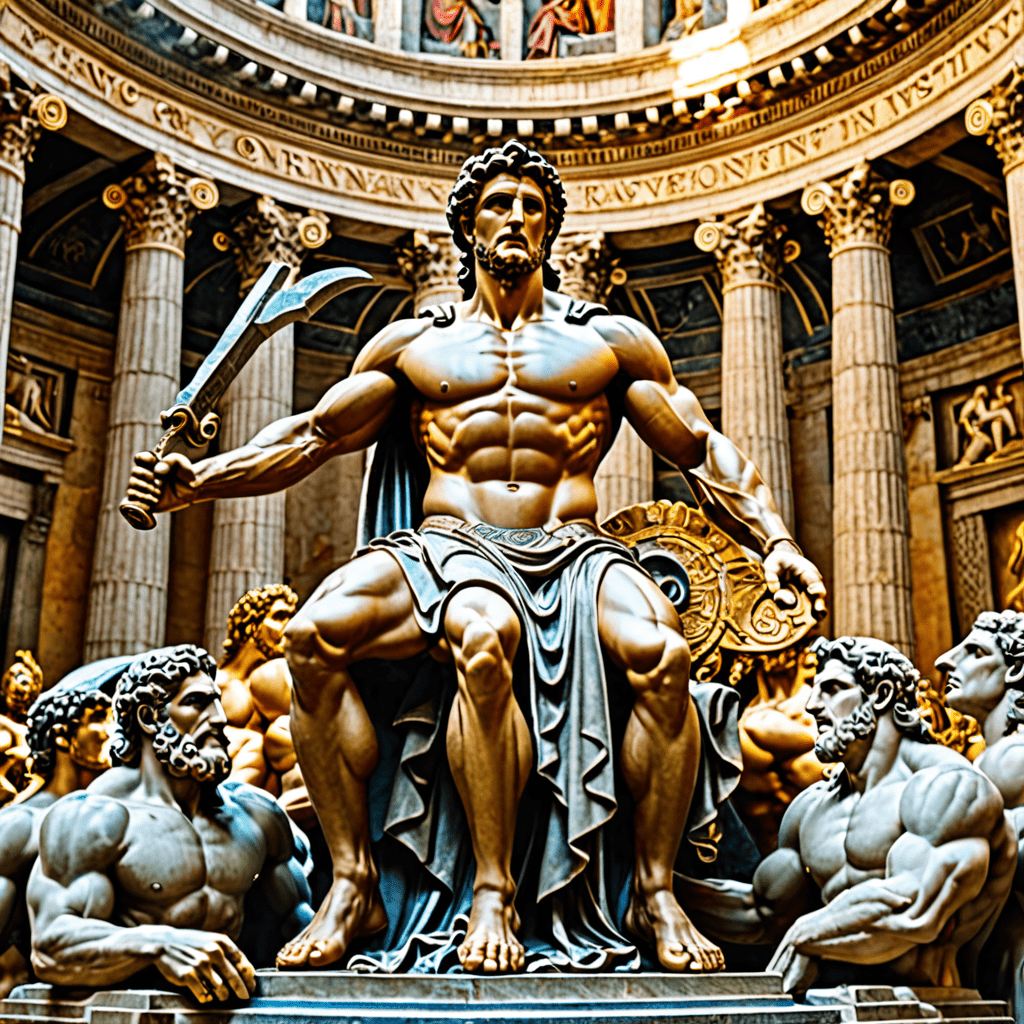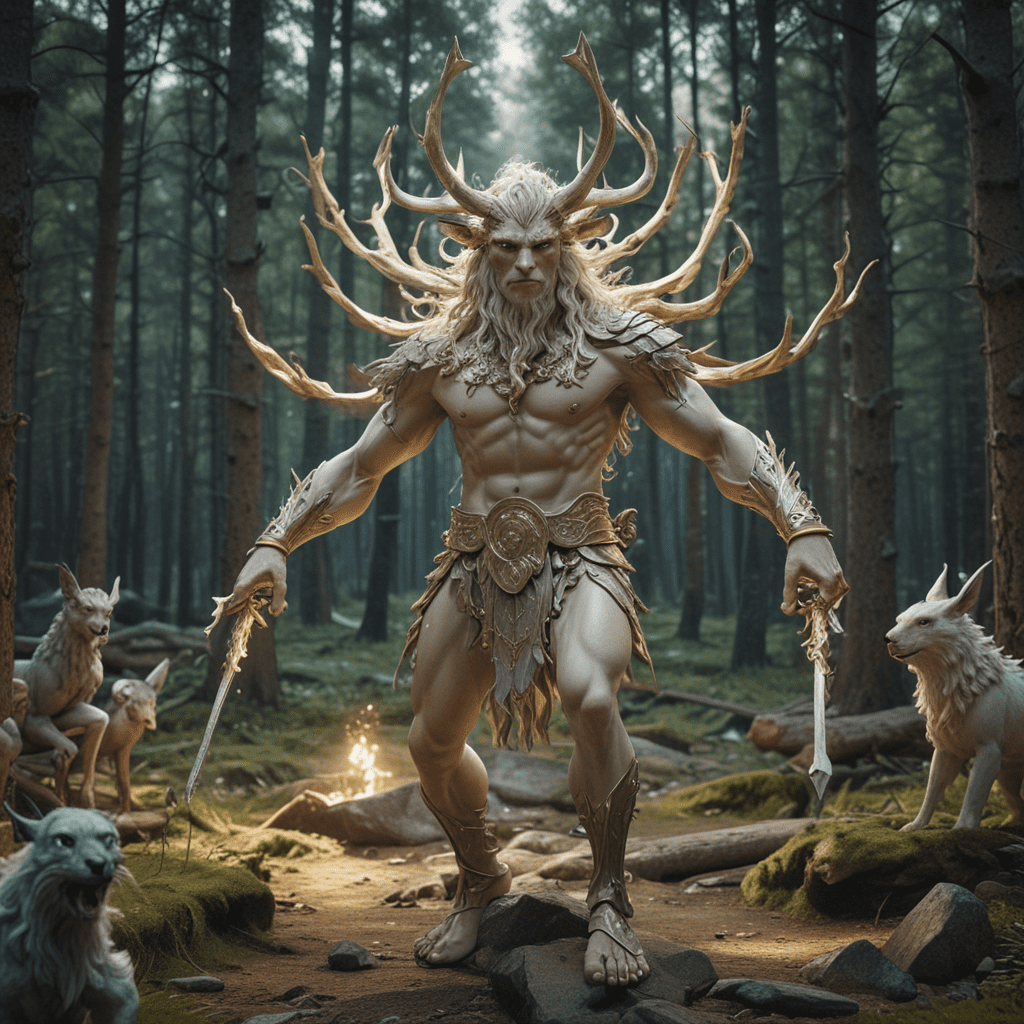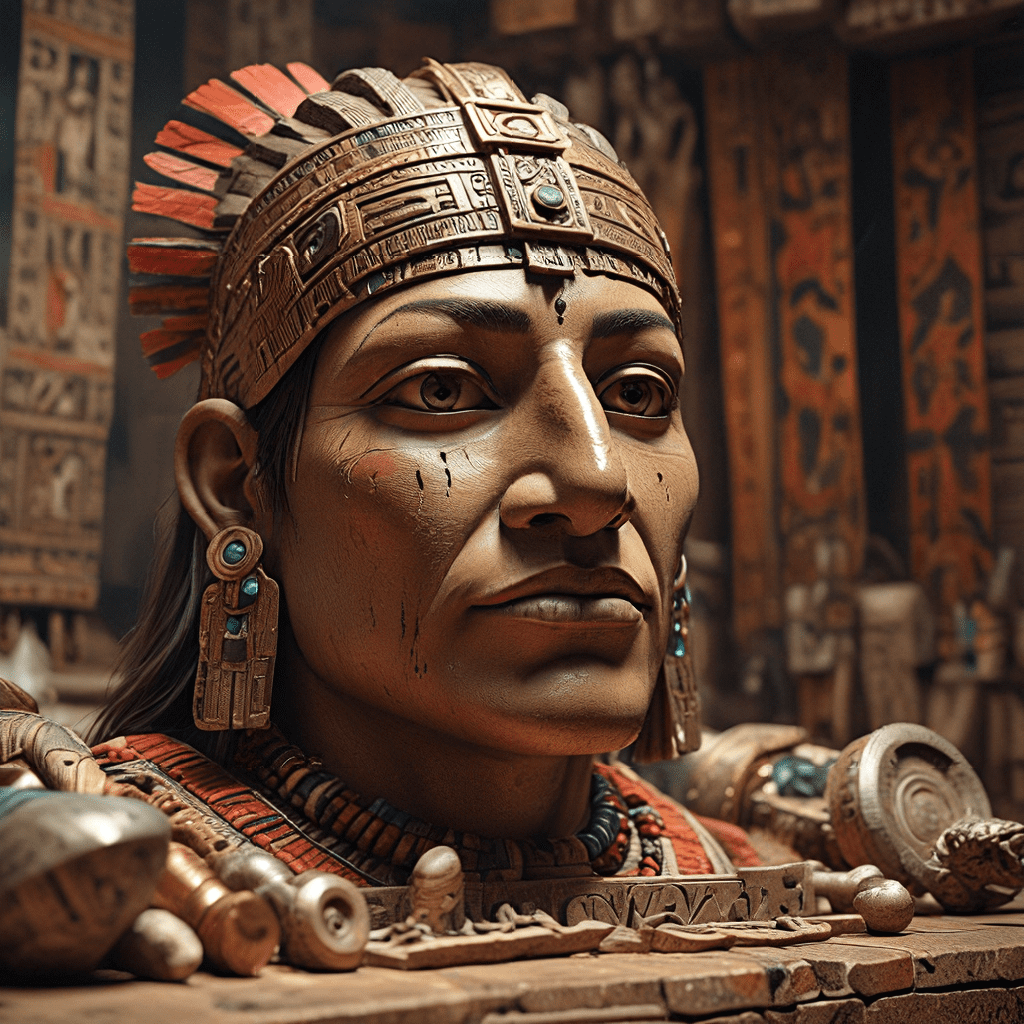Roman Mythology: Gods of Invention and Creativity
Introduction to Roman Mythology
Roman mythology, a fascinating tapestry of gods, goddesses, and legends, has intrigued and inspired people for centuries. Similar to Greek mythology, Roman mythology has its own pantheon of deities with unique qualities and domains. Among these divine beings are gods specifically associated with invention and creativity, responsible for bringing new ideas, arts, and innovations into the world.
Vulcan: The God of Fire and Forge
Vulcan, also known as Hephaestus in Greek mythology, is the Roman god of fire, volcanoes, and the forge. Believed to be the son of Jupiter and Juno, Vulcan is revered for his exceptional skill in blacksmithing and craftsmanship. He is often depicted with a hammer and anvil, symbolizing his role as the god of invention and creativity. Vulcan’s workshops were believed to be located under volcanoes, where he forged powerful weapons for the gods and crafted magnificent works of art.
Minerva: The Goddess of Wisdom and Crafts
Minerva, the Roman equivalent of Athena in Greek mythology, is the goddess of wisdom, strategic warfare, and crafts. As a patroness of artisans and inventors, Minerva is considered a source of inspiration for creative endeavors. She is often depicted with an owl, representing wisdom, and accompanied by artisans and inventors seeking her guidance. Minerva’s creativity is evident in her various inventions and innovative strategies that helped the Romans achieve success in both arts and war.
Mercury: The God of Communication and Commerce
In Roman mythology, Mercury, or Hermes in Greek mythology, is the fleet-footed messenger of the gods, associated with communication, travel, and commerce. Known for his wit and ingenuity, Mercury embodies the spirit of invention and adaptability. Apart from his role in facilitating communication among the deities, Mercury is also considered the god of trade, commerce, and financial gain. His inventive nature and ability to navigate different domains make him a beloved figure among both gods and mortals.
Through the stories and attributes of these gods of invention and creativity in Roman mythology, we gain insights into the ancient Romans’ appreciation for artistic expression, innovation, and strategic thinking. Their enduring influence in various aspects of human endeavor serves as a testament to the richness and complexity of Roman mythology and its lasting impact on culture and creativity.

Frequently Asked Questions about Roman Mythology: Gods of Invention and Creativity
Who are the Roman gods associated with invention and creativity?
In Roman mythology, the gods associated with invention and creativity are primarily Vulcan, also known as Hephaestus in Greek mythology, and Minerva, the Roman counterpart of Athena.
What is Vulcan known for in Roman mythology?
Vulcan is the Roman god of fire, metalworking, and the forge. He is revered for his exceptional skills in crafting weapons and tools for the gods and heroes.
Who is Minerva and what is her role in Roman mythology?
Minerva is the Roman goddess of wisdom, strategic warfare, art, and crafts. She is celebrated for her creativity, intellect, and inventiveness.
How did Vulcan and Minerva influence ancient Roman society?
Vulcan and Minerva were highly revered in ancient Roman society for their roles in imparting skills in craftsmanship, technology, strategy, and the arts. Their influence was pivotal in fostering creativity and innovation.



